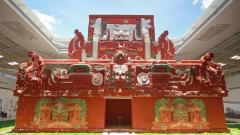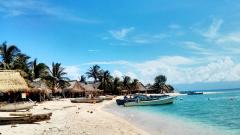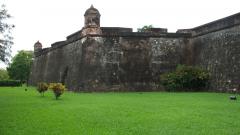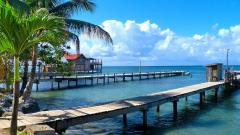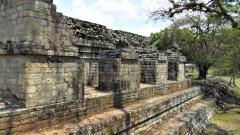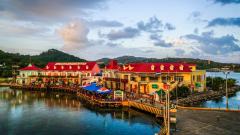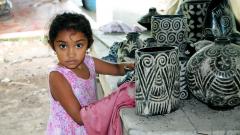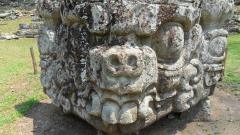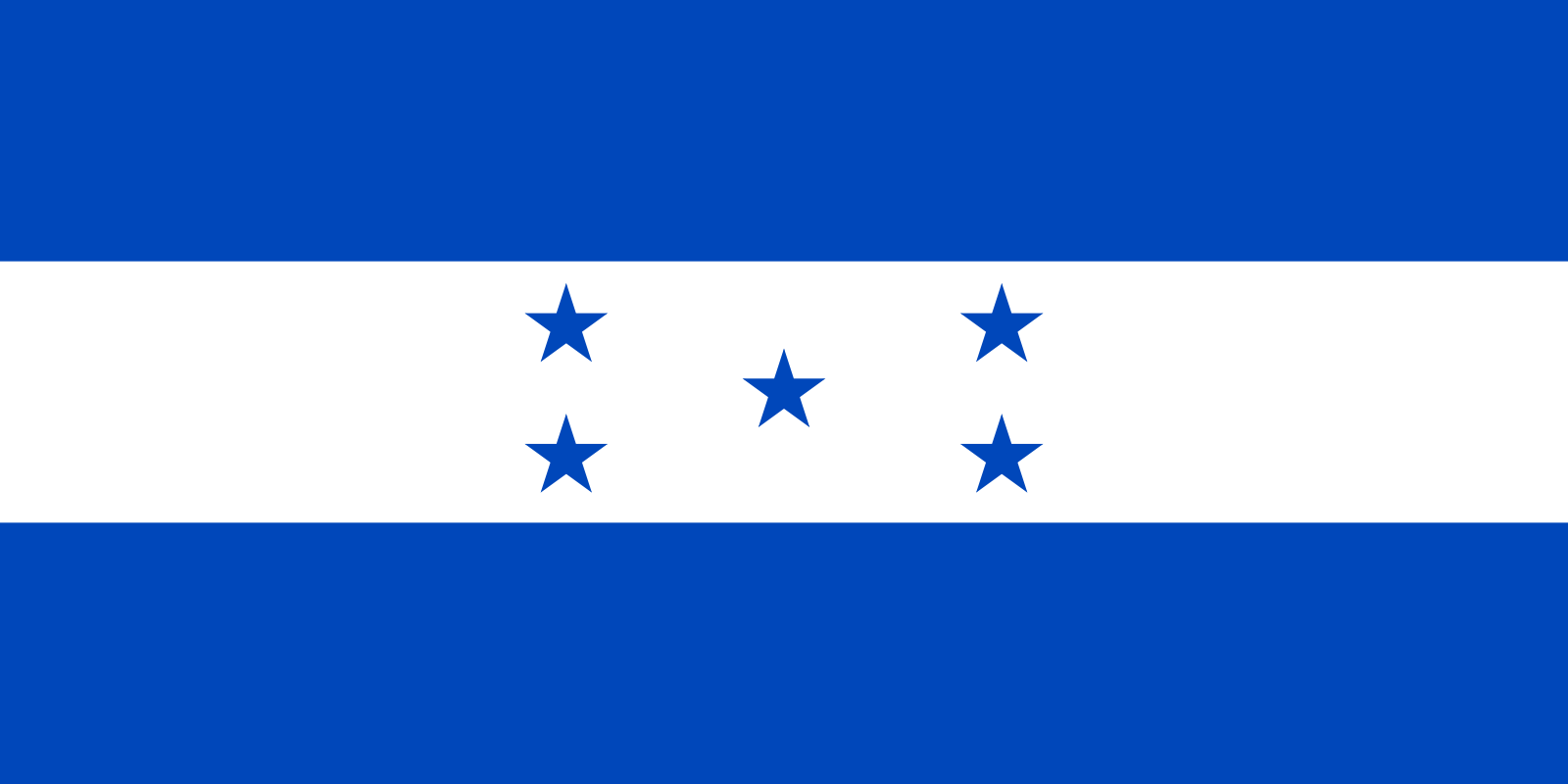 travel to Honduras
travel to Honduras
The Republic of Honduras is located right in the centre of Central America. Its borders border with Guatemala and El Salvador, to the east with Nicaragua, to the north with the Caribbean Sea, and to the south with the Pacific Ocean. Its territory is characterized by being mountainous, being its highest peak in Celaque with an altitude of 2,849 meters. Its geography is also made up of extensive and fertile plains where the rivers flow to the Pacific and the Caribbean. 75% of the Honduran territory is composed of forest, which contributes to its natural attraction.
Honduras is characterized by being a multi-ethnic, multicultural and multilingual nation, differentiating mainly between whites or mestizos from indigenous races, Garífuna and Afro-Antilleans. The official language is Spanish, although in the department of the Bay Islands, the population knows how to speak English. The country is divided into 18 departments, being the capital of Honduras in Tegucigalpa right in the centre of the country.
The tourist who visits Honduras has a disposition a wide range of activities related to the rich marine biodiversity and its archaeological sites. The visitor can also appreciate the cultural and gastronomic richness of Honduras.
The country has extensions of national parks, among which we can highlight the Pico Bonito National Park. This park is one of the most outstanding in Honduras thanks to its wide biodiversity of which a part is unexplored today. The area is dominated by the Nombre de Dios mountain range, where the Garífuna people live and welcome visitors with open arms. The Río Plátano Biosphere Reserve is a huge territory that descends from the mountains to the Caribbean Sea where tropical nature and indigenous villages coexist in harmony. Other essential natural tourist scenarios are the Yojoa Lake and the archaeological site of the Talgua Caves. Its geographical location on the continent means that it has white sand beaches and crystal-clear water, such as the beaches of Utila, Guanaja and Roatán, and the Cayos Cochinos, all within the Caribbean Sea.
The pre-Columbian history of the country is reflected in places such as the Copán Ruins, a tourist attraction that attracts millions of visitors every year. In this place there are remains of the ancient Mayan civilization such as temples, palaces, squares, etc. Other archaeological remains found in Honduran soil are the El Puente Archaeological Park and the El Rastrojón archaeological site.
The country also has buildings from the colonial era, such as the Fortress of San Fernando de Omoa, the Fortress of Santa Bárbara in Trujillo or the Basilica of Our Lady of Suyapa in Tegucigalpa, among many other places. You can learn more about Honduras's past through its cities: Tegucigalpa, Comayagüela, La Ceiba, San Pedro Sula, Gracias, …
REQUIRED DOCUMENTATION
To enter Honduras it is necessary to show the passport with a minimum validity of six months, except for the citizens of El Salvador, Guatemala and Nicaragua who can enter showing their identity document. Minors must show their passport. You must also have a round trip ticket and a hotel reservation or invitation letter.
Citizens from the European Union will not require a visa to enter Honduras, as well as other countries such as Peru, Colombia, Mexico, Guatemala, Ecuador and Argentina. To see if you need a visa, check the following address: http://cedturh.iht.hn/docs/PA%C3%8DSES%20QUE%20NECESITAN%20VISA%20PARA%20INGRESAR%20A%20HONDURAS.pdf
A maximum stay of 90 days without a visa is allowed, and may be extended for up to three months by paying 20 US $ for each extra month.
EMBASSIES AND CONSULATES: https://www.embassypages.com/honduras
PRINCIPAL AIRPORTS OF HONDURAS
- Toncontín International Airport, in Tegucigalpa (Codex TGU)
- Golosón International Airport, in La Ceiba (Codex LCE)
- Ramón Villeda Morales International Airport, in Cortés (Codex SAP)
- Juan Manuel Gálvez International Airport, in Bay Islands (Codex RTB)
practical information
useful information before leaving
Language
Religion
Political regime
Currency
Warnings
Documentation
Vaccines
recommendations
Recommendations before traveling to Honduras
SECURITY
Honduras is currently a country where the risk is very high and where a large part of the population has access to firearms. That is why tourists should exercise caution especially in large cities such as Tegucigalpa, La Ceiba and San Pedro Sula even during the day. It is also discouraged to visit the Mosquitia area.
Do not hire taxi services on the street, hire them calling from the hotel.
It is not advisable to use the urban bus service as it lacks security measures.
Avoid showing off large amounts of money or jewellery or technological devices. Theft and robbery of tourists are frequent, especially in large cities.
Make use of ATMs inside shopping centres and / or banks, avoiding using those that are located on public roads without any type of security measure.
The state of the main roads is usually in good condition, but the absence of signage and lighting make it very dangerous to drive at night. Use only main routes, and raise the windows and lock the vehicle when traveling in urban areas.
Honduras is a country prone to the proliferation of hurricanes and overflows due to rain. In case of natural disaster, always follow the instructions given by the competent authorities.
HEALTH
It is recommended to take out a comprehensive medical insurance before travelling to Honduras. Private sanitary facilities are the only ones that meet the average quality requirements, but in certain regions such as the Rotán, Utila and Guanaja islands there are no hospitals.
Avoid drinking water directly from the tap, therefore it is advisable to drink bottled water. Ensure that food is properly disinfected and does not consume food served in street stalls.
Recently there have been cases of Zika, dengue and Chikungunya. It is for this reason that it should avoid areas where mosquitoes proliferate as stagnant waters, with the months of August, September and October having the highest incidence.
The vaccination certificate against yellow fever is mandatory for visitors from endemic countries, and which must have been supplied ten days before the trip. See if you need to be vaccinated.
Other recommended vaccines, whatever the country of origin of the traveller, are the vaccine against the triple viral (mumps, measles and rubella), hepatitis A and tetanus-diphtheria.
CLIMATE AND TEMPERATURES
The climate of Honduras is of tropical character, being very common the high temperatures, the humidity and the abundant precipitations. Honduras has two very distinct and defined seasons: the dry season, which runs from November to April; and the wet season, which runs from May to October.
The average annual temperature is around 20ºC, with maximum temperatures of 32-35ºC and minimum temperatures of only 20ºC. It should be noted that as the climate is tropical, the sensation of heat is due to the humidity of the environment.
BUSINESS HOURS
The shops usually open from Monday to Friday from 9:00 to 12:00, and from 14:00 to 18:00 in the afternoon, while on Saturdays they only open in the morning.
TIPS
In some places, the tip is given on the bill, which is 10%. It is advisable to leave a tip if the treatment received has been good.
ELECTRICITY
The electrical voltage is 110 volts in practically the whole country and the frequency of 60 Hz. The types of plugs used are A and B. See if you need an adapter.
TELEPHONES OF INTEREST
The phone code of Honduras is +504.
Some telephones of interest by the user are the following: emergencies (911); civil protection (113); Red Cross (195); firefighters (198).
TIME ZONE
UTC-6.

